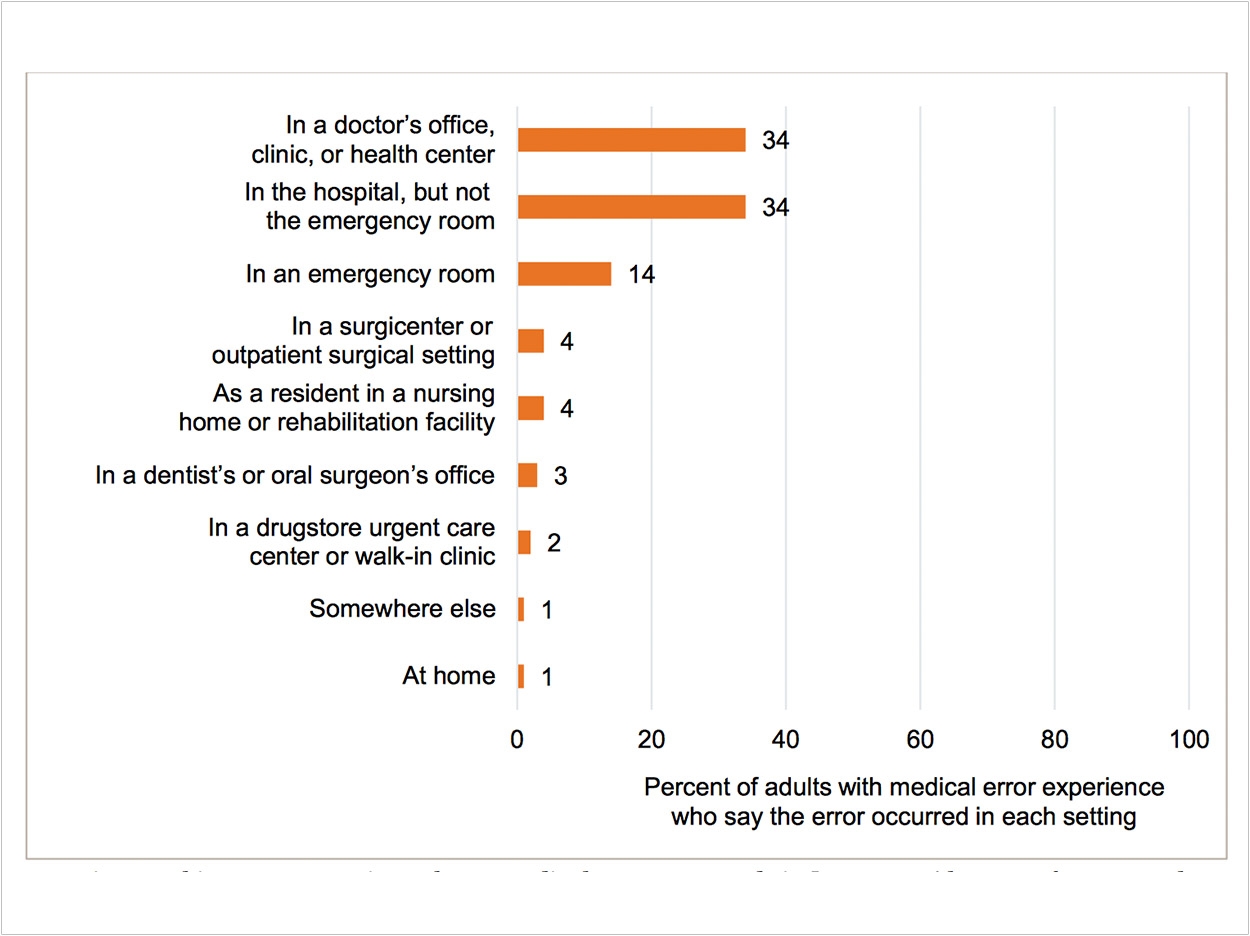
While most Americans have positive experiences with the healthcare system, 21% of adults have personally experienced a medical error at some point in their lives, according to a joint survey from the Institute for Healthcare Improvement (IHI), National Patient Safety Foundation (NPSF) Lucian Leape Institute, and NORC at the University of Chicago. Also, these groups report, only 3% of these errors occurred in dentists’ or oral surgeons’ offices.
Meanwhile, 34% occurred in a doctor’s office, clinic, or health center, and another 34% were in the hospital but not the emergency room (ER). Next, 14% were in the ER, followed by 4% in a surgicenter or outpatient surgical setting and 4% in a nursing home or rehabilitation facility. After dentistry, 2% were in drugstores, urgent care centers, or walk-in clinics, 1% were at home, and 1% were somewhere else.
Misdiagnoses accounted for the greatest number of errors at 59%, followed by mistakes made during a test, surgery, or treatment; diagnoses that didn’t make sense; a lack of respect during treatment; wrong instructions about follow-up care; incorrect medication dosages; unneeded treatment; instructions from different providers; infections after treatment; and incorrect medication, among other errors. Also, the survey found that:
- Nearly half of those who perceived an error brought it to the attention of medical personnel or other staff at the healthcare facility.
- Most respondents believe that, while healthcare providers are chiefly responsible for patient safety, patients and their families also have a role to play.
- When asked what caused the error they experienced, people identified on average at least seven different factors.
“The survey results show that Americans recognize that patient safety is a critically important, but complex, issue,” said Tejal K. Gandhi, MPH, chief clinical and safety officer at IHI and president of the IHI/NPSF Lucian Leape Institute. “The focus on diagnostic errors and the outpatient settings closely parallels other research in this area and confirms that healthcare improvers need to take a systems approach to safety that encompasses all settings of care, not just hospitals.
Additionally, 69% of those who have not experienced an error say it is unlikely that they will experience an error in a doctor’s office, a dentist’s office, their own home, or a hospital but not the ER, pharmacy, surgical center, or outpatient surgical setting. Furthermore, 23% say it is moderately likely they will experience an error at the dentist’s or oral surgeon’s office, and 5% say it is very or extremely likely.
Related Articles
A Better Ability to Admit Mistakes May Mitigate Medical Errors
Study Says Patient Safety Needs More Research
Build Your Brand With Better Patient Experiences












